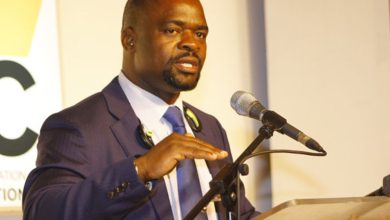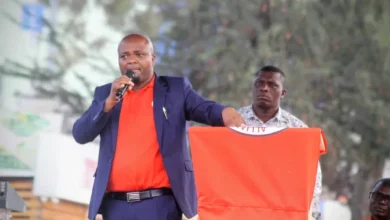Education revolution: Tanzania’s race to quality learning

DAR ES SALAAM: SUPPORTING the government’s education growth in the country, the Tanzania Education Network (TEN/MET) has been the driver behind this high-octane journey, pushing relentlessly for an education system that not only meets global standards but is also uniquely tailored to the country’s evolving needs.
For years, TEN/MET has been quietly (and sometimes not so quietly) paving the way for the education revolution Tanzania needs.
With technology advancing faster than you can say “download,” the network understands that education systems must keep pace, not just to keep children in school, but to prepare them for a world that’s changing at lightning speed.
If education is the engine of national development, then Tanzania is revving up to win the race.
This month marks a significant milestone as TEN/ MET hosts the 5th International Quality Education Conference (IQEC) at the Julius Nyerere International Convention Centre (AICC) in Dar es Salaam.
The conference’s theme, “Strengthening Systems and Investments: Advancing Domestic Resource Mobilisation for Inclusive, Quality and Sustainable Education in Africa,” sounds like a mouthful but boils down to one clear message: It is time for African countries to stop relying on handouts and start funding their own education futures.
Gracing the occasion, Deputy Prime Minister and Minister for Energy, Dr Doto Biteko, took centre stage at the launch, underscoring the importance of investing heavily in education.
He reminded everyone that education is the ultimate gift-you can lose your possessions, but no one can ever snatch away your learning.
His words carry weight in a world where technology reshapes every aspect of life overnight. Quality education, he argued, is the key to navigating this storm of change and coming out stronger.
What is more, Dr Biteko emphasised that education can’t be left to the Ministry of Education alone; it requires a multisectoral team effort.
Imagine trying to build a house with only the roofers and no foundation crew and that is what happens if other ministries don’t get on board. Collaboration is key to creating leaders who can confidently steer Tanzania’s development agenda.
Conferences like IQEC aren’t just for show, but provide a critical forum to diagnose education’s challenges and prescribe solutions. One of the major prescriptions? Financing education from within.
Relying on external donors might work temporarily, but long-term stability demands domestic resource mobilisation, giving Tanzania and other African countries control over their own destinies.
Echoing this sentiment, TEN/MET’s Board Chairperson, Simon Nanyaro, highlighted that this year’s conference couldn’t have come at a better time.
It is a platform to rethink and reinforce education systems through locally driven investments-helping reduce dependence on foreign aid, increase equity and boost accountability.
In other words, when you own your education financing, you own your future.
Mr Nanyaro also lauded the Tanzanian government’s efforts, especially policy reforms, curriculum updates, new infrastructure and teacher recruitment that demonstrate real commitment to decongest classrooms and enhance learning environments.
ALSO READ: Learning from China: Policy dialogue guides Dira 2050
Quality education is not just theory here; it is visible in freshly built classrooms and bettertrained teachers.
National Coordinator Martha Makala echoed this optimism, underscoring the importance of turning conference discussions into practical action.
It’s not enough to leave the venue with ideas; the goal is to come out with workable plans that will tangibly improve education across Tanzania and the wider African continent.
She also thanked the Ministry of Education and funding partners like the Mastercard Foundation and Global Partnership for Education for making the event a success.
What makes the conference particularly engaging are its panel discussions, tackling some of the trickiest issues in education today.
One spotlight session, titled “Education, Health and Gender- Menstruation as a Barrier for Girls’ Education, A Case from Tanzania,” throws light on a rarely discussed but crucial topic.
Menstruation remains a major obstacle for many girls, sidelining them from school at key moments.
The session, moderated by Consolata Chikoti of the Msichana Initiative, blends education, health and gender conversations to push for practical solutions.
Another hot topic and that is “Human Intelligence versus Artificial Intelligence: Who is in Control of Learning?” questions how the rise of AI in classrooms might change the role of teachers and students.
Is AI a helpful assistant or a potential replacement? The panel explores how technology can enhance human creativity without sidelining it, sparking debate about the future of education in an increasingly digital world.
Then there’s the burning question of inclusion, with a discussion on whether inclusive education is a reality in Tanzania or still an elusive ideal.
Panelists dive into the progress made so far, ongoing challenges and strategies needed to ensure every learner, regardless of ability or background, has a fair shot at education.
Last but not least, the conference tackles social inequality from an early age, through a presentation by Associate Professor Thor Erik Sortland on “Social Inequality in Early Childhood Education.”
The takeaway is clear: Inequality starts early and requires early intervention.
Behind the scenes, TEN/ MET operates as a national coalition uniting 245 civil society organisations focused on education.
This vast network ensures diverse voices from government officials and private sector players to students and grassroots activists converge to push for quality, inclusive education for all Tanzanian children.
It’s a reminder that education is a fundamental human right and a critical pillar for sustainable development.
Globally, education systems grapple with financial shortfalls, infrastructure gaps, teacher shortages, digital divides and persistent inequalities that keep vulnerable groups behind.
Tanzania’s bold moves signal a commitment not just to keep pace, but to set the pace for the continent. So, what’s the bottom line? Tanzania is no longer content to sit in the backseat of education development.
It’s taking the wheel, flooring the accelerator and steering toward an education system that prepares learners for the challenges and opportunities of the 21st century.
The road ahead won’t be without bumps, but with local ownership, smart investments and inclusive policies, Tanzania is racing toward a brighter future where every child has access to quality education.
And as the old saying goes, education is the one thing no one can ever take away so let us make sure everyone gets their share.





